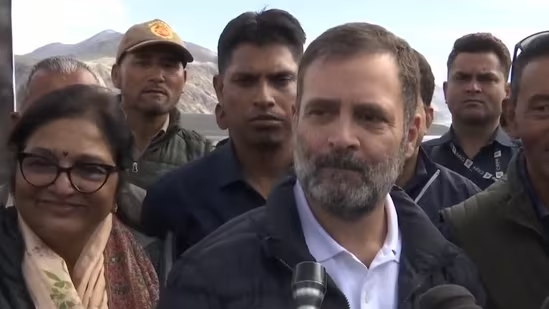In a bold move that has sparked nationwide discussions, Rahul Gandhi, a prominent leader of the Indian National Congress, has taken a stand against China’s alleged occupation of grazing land in the Ladakh region. With tensions at the India-China border simmering, Gandhi’s accusations have ignited a fresh debate on the issue. Let’s delve into the details and implications of this significant development.
Raising the Issue: A Voice for the People
During a recent visit to Ladakh, Rahul Gandhi voiced concerns over China’s alleged occupation of grazing land, a matter that has grave implications for the people of the region. Dismissing Prime Minister Narendra Modi’s assertion that no land had been taken by China, Gandhi stood by the local population, asserting that their grazing land had indeed been encroached upon.
Gandhi’s stand resonates with the concerns of the people of Ladakh, who have been adversely affected by the occupation. The grazing land is not just a piece of territory; it’s an essential resource for the livelihoods of many. By addressing this issue, Gandhi has given a voice to the people and highlighted their struggles.
Unmasking Contradictions: Land Dispute Unveiled
The accusation made by Gandhi raises questions about the veracity of the statements made by the Indian government. Prime Minister Modi’s assertion that no land had been taken by China seems to clash with the reality on the ground, as observed by Gandhi during his visit to the Pangong Lake area. The leader’s statement that “not an inch of land was taken away” appears to be at odds with the ground reality as witnessed by the locals.
Gandhi’s visit has shone a light on the contradictions and discrepancies in official statements, underlining the need for transparency and accurate information dissemination. The contrasting narratives put forth by different leaders bring to the forefront the importance of addressing the issue of land occupation through open dialogue and cooperation.
Political Repercussions: A Message to China
Rahul Gandhi’s outspoken stance carries significant political implications, particularly in the context of the ongoing border tensions between India and China. By challenging China’s land occupation, Gandhi sends a clear message that the Indian opposition is vigilant and committed to safeguarding national interests. This move not only resonates within India but also carries implications on the international stage.
Gandhi’s accusations have prompted responses from various quarters. While Congress media and publicity head Pawar Khera expressed gratitude for Gandhi’s efforts in raising the issue, former J&K Deputy CM Kavinder Gupta criticized Gandhi’s understanding of the Ladakh situation. The differing responses underscore the complexity of the issue and the diverse perspectives surrounding it.
The Ladakh Conundrum: Representation and Unemployment
During his visit, Gandhi interacted with the people of Ladakh, listening to their grievances and concerns. The status of Ladakh as a Union Territory has been a subject of contention, with locals expressing dissatisfaction and a desire for representation. Gandhi’s interaction with the people revealed a pressing issue of unemployment and the need for a more participatory approach to governance.
The leader’s observation that the state should be run by the voice of the people rather than solely by bureaucracy reflects the need for inclusive decision-making processes. By engaging with the concerns of the local population, Gandhi advocates for a more democratic and inclusive approach to addressing the challenges faced by the region.

A Call for Dialogue and Resolution
Rahul Gandhi’s visit to Ladakh and his subsequent accusations against China’s land occupation have brought the issue to the forefront of public discourse. The leader’s bold stance has ignited discussions on the veracity of official statements, the complexities of the Ladakh situation, and the need for transparent communication.
As tensions between India and China persist, Gandhi’s move can be seen as an effort to push for open dialogue and resolution. By challenging the occupation of grazing land, he raises awareness about the implications of such actions on local livelihoods and the broader geopolitical context.
In conclusion, Rahul Gandhi’s stand against China’s land occupation in Ladakh highlights the need for transparency, inclusivity, and cooperation. As the issue continues to evolve, it serves as a reminder that dialogue and understanding are crucial in resolving complex geopolitical disputes.












